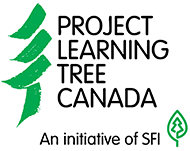Acknowledging Traditional and Treaty Territory
We encourage you to join PLT Canada in celebrating the vibrant cultures, traditional knowledge, and ongoing contributions of Indigenous Peoples to the green sector and all of Canada.
PLT Canada has partnered up with Sault College to deliver free registrations for youth aged 15–30 to the course “Acknowledging Traditional and Treaty Territory.”
This 2-hour course provides foundational information about Indigenous Peoples in Canada. Topics include identifying communities & relevant treaties within your local area and crafting a territorial acknowledgment. (Market value: $59)
By filling out the form below, youth aged 15–30 can gain access to the short course and learn how to craft their own territorial acknowledgement and about the original stewards of the territory that they call home. After filling out the form, you will be emailed a free registration code.
Register for the free course
PLT Canada’s office and much of our team lives and works in the traditional, unceded territory of the Algonquin nation. We recognize the Algonquin’s time-honoured relationships with and stewardship of its lands and waters, and are committed to upholding our shared responsibilities to continue that stewardship for present and future generations.


